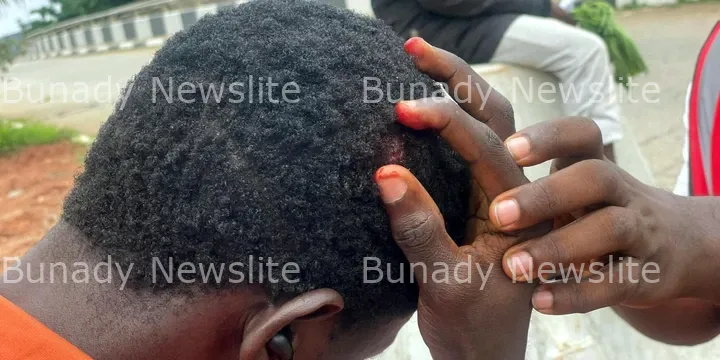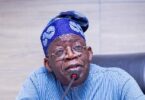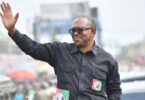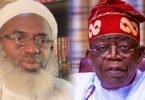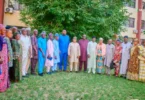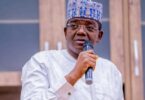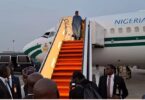On the morning of 1 August, a Nigerian journalist, Yakubu Mohammed, was attacked in Abuja while covering the #EndBadGovernanceInNigeria protest in Moshood Abiola Stadium, Abuja. Mr Mohammed, a PREMIUM TIMES reporter, was beaten, harassed and wounded in the head while hitting him with the butt of a gun before they let him go, despite his clear identification as a journalist with a press jacket. His offence was performing his duty at the protest ground.... CLICK TO READ THE FULL NEWS HERE▶▶
The Reporters Without Borders 2024 World Press Freedom Index noted the alarming trends for violence against the press during protests, election periods and the increasing political control of the media in several African countries, especially Nigeria.
Like Yakubu, at least 30 other journalists have faced similar attacks while covering the #EndBadGovernanceInNigeria protests against the rising cost of living and insensitivity of the government, according to Press Attack Tracker (PAT). This is apart from journalists who escaped death or serious injuries but who left the protest ground at Moshood Abiola Stadium with pockmarked vehicles when security forces shot at them and peaceful protesters on Saturday.
Security forces wage war against journalists
PREMIUM TIMES collated some of the incidents of press freedom violations between 31 July (Thursday) and the third day on Saturday, as reported on various news platforms.

On the eve of the protest, Wednesday, 31 July, News Central Television reporter Bernard Akede was interrupted and harassed by police officers while reporting live at the Lekki Toll Gate area of Lagos State, disrupting the television station’s live broadcast.
A journalist with the Daily Independent Newspaper, Jide Oyekunle, who is also the Chairman of the Nigerian Union of Journalists (NUJ, FCT Chapter), was maltreated by a policeman in Abuja. According to him, the Commissioner of Police ordered that his phone be confiscated for covering the protest.
Article Page with Financial Support Promotion
Nigerians need credible journalism. Help us report it.
PREMIUM TIMES delivers fact-based journalism for Nigerians, by Nigerians — and our community of supporters, the readers who donate, make our work possible. Help us bring you and millions of others in-depth, meticulously researched news and information.
It’s essential to acknowledge that news production incurs expenses, and we take pride in never placing our stories behind a prohibitive paywall.
Will you support our newsroom with a modest donation to help maintain our commitment to free, accessible news?
Also in Abuja, Kayode Jaiyeola, a photojournalist with Punch Newspaper, was arrested by a police officer believed to be attached to the National Security Adviser, Nuhu Ribadu. Mr Jaiyeola was handed over to members of the FCT Police Command, who detained him.
Police during protest
News Central Television journalist Mary Adeboye was tear-gassed by police officers while covering the protest in Abuja.
Jonathan Ugbal, the Managing Editor of Cross River Watch, an online newspaper, was assaulted and arrested at the Mary Slessor roundabout area of Calabar, the Cross River state capital. He was taken to an undisclosed location, where he was detained for several hours.
In Maiduguri, the capital of Borno State, nine staff members of Radio Ndarason International (RNA), including the editor-in-chief, head of programmes, and Nigeria office director, were also arrested. Their arrest and detention are believed to be connected to an earlier visit by the state Commissioner for Information and Internal Security, who was at the radio station that day.
The failure of the police to provide adequate security was also evident in attacks on journalists by hoodlums who exploited the poor security situation to unleash mayhem on journalists covering the protest.
Audience Survey
In Delta State, journalists were attacked by pro-government protesters who assaulted #EndBadGovernanceInNigeria protesters intending to disrupt their demonstrations. Some journalists who fell victim to this attack were Guardian Newspaper reporter Monday Osayande and Punch Newspaper reporter Matthew Ochei. They were both attacked while interviewing protesters.
A TVC correspondent was attacked by weapon-bearing hoodlums while covering the protest in Kano State, resulting in an injured hand.
About 11 journalists were also attacked in a Channels TV vehicle, and in the process, TVC correspondent Ibrahim Isah was injured while trying to escape from the scene.
On Saturday, the third day of the protests, police and State Security Service (SSS) shot at peaceful protesters and journalists at the Moshood Abiola Stadium in Abuja.
Spate of press attacks troubling — CJID
Reacting to the development, Busola Ajibola, Deputy Director, Journalism Programme, CJID, said, “It is deeply troubling that members of the Nigerian police chose to harass journalists, [who are] fulfilling their duty to keep the public informed, instead of providing security for citizens exercising their constitutional right to peaceful protest.”
“The attacks on journalists by the Nigerian Police Force not only violate the rule of law but also constitute abuse of the fundamental rights of journalists and an affront to the principles of democracy.
“Journalists are crucial in sustaining a functional democracy and must be protected by the state and all stakeholders.”
NHRC, IPI Nigeria react
Concerned by the developments, the National Human Rights Commission (NHRC) has asked the police authorities to probe and sanction their officers who attacked journalists during the #EndBadGovernanceInNigeria protests.
Similarly, the Nigerian National Committee of International Press Institute (IPI Nigeria) has called on Kayode Egbetokun, Nigeria’s Inspector General of Police, to thoroughly investigate the cases of harassment of journalists and ensure that all involved police officers are held accountable and brought to justice.
Background
On 1 August, Nigerians trooped to the streets in major cities of Africa’s largest democracy as a response to bad governance, rising inflation, and untold hardship attributed to the economic policies of President Bola Tinubu since he assumed office last year.
Despite Nigeria’s vast oil resources, Nigerians grapple with poverty and hunger while their political leaders are among the best paid in Africa.
Amid this, the government has shown insensitivity to the plights of most of its citizens.
Many aggrieved citizens consider the priority the Nigerian government gives political office holders, who are pampered with huge remuneration and expensive luxurious cars funded from the public coffers, provocative.
This attitude starkly contrasts with the government’s call on citizens to tighten their belts to cope with the fallouts of the removal of petrol subsidies and its long-term economic policies, which contributes to fuelling the protests, which organisers said would be held for 10 days.
Led by the youths, the protesters demand to push for better governance, economic reforms, job opportunities, improved security, human rights protection, and respect for the rule of law.
The protest entered its fourth day on Sunday, with the organisers vowing it would continue until Saturday, 10 August.
Security agencies have killed at least 13 people during the protests, according to Amnesty International.
President Tinubu lamented the violence, looting and killing that have characterised the protests in many states but was silent on the brutality of the security agencies during the protest

